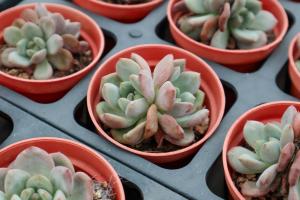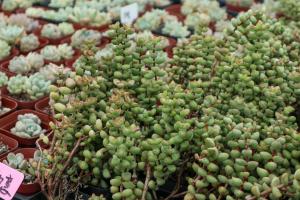Can I Plant Vegetables in the Galvanized Pot?
If you're looking for a quick answer to the question of whether you can plant vegetables in a galvanized pot, the answer is yes! However, there are some important things you should consider before starting your vegetable garden in a galvanized pot.
What is a Galvanized Pot?
A galvanized pot is a container made of steel that is coated with a layer of zinc to protect it from rust and corrosion. Galvanized pots are commonly used as planters because they are durable, weather-resistant, and can be found in a variety of sizes and styles to fit any gardening style.
Advantages of Using a Galvanized Pot for Vegetable Gardening
Here are some of the advantages of using a galvanized pot for your vegetable garden:
Galvanized pots are weather-resistant, meaning they can withstand harsh environments such as rain, snow, and intense sunlight.
Galvanized pots are lightweight, making them easy to move around your yard or balcony.
Galvanized pots are versatile and can be found in various sizes and shapes to fit your vegetable gardening needs.
Galvanized pots can add an attractive industrial or vintage look to your garden or balcony.
Things to Consider When Planting Vegetables in a Galvanized Pot
When planting vegetables in a galvanized pot, there are a few things you should consider:
Galvanized pots can heat up quickly in direct sunlight, so you should choose a spot that receives partial shade if you live in a hot climate.
Make sure your galvanized pot has drainage holes to prevent water from pooling in the bottom and causing root rot.
Because galvanized pots are made of steel, they can rust over time. You can prevent rust by using a rust-resistant spray paint to coat the outside of the pot.
Galvanized pots can sometimes contain lead, which can be harmful to your health. To avoid this, you should line the inside of your pot with a food-grade liner or paint the inside with a non-toxic sealant.
What Vegetables Can You Plant in a Galvanized Pot?
The good news is that almost any vegetable can be grown in a galvanized pot, as long as the pot is big enough for the roots to grow and there is enough soil and water. Some vegetables that do well in galvanized pots include:
Tomatoes
Peppers
Lettuce
Spinach
Cucumbers
Zucchini
Herbs
Conclusion
In conclusion, planting vegetables in a galvanized pot is an excellent way to start your own home vegetable garden. With its durability, versatility, and weather-resistant properties, a galvanized pot can be an attractive and practical addition to any garden or balcony. Just make sure to consider the factors listed above before starting your gardening project, and you'll be on your way to growing healthy and delicious vegetables in no time!

 how many times do yo...
how many times do yo... how many planted tre...
how many planted tre... how many pine trees ...
how many pine trees ... how many pecan trees...
how many pecan trees... how many plants comp...
how many plants comp... how many plants can ...
how many plants can ... how many plants and ...
how many plants and ... how many pepper plan...
how many pepper plan...































